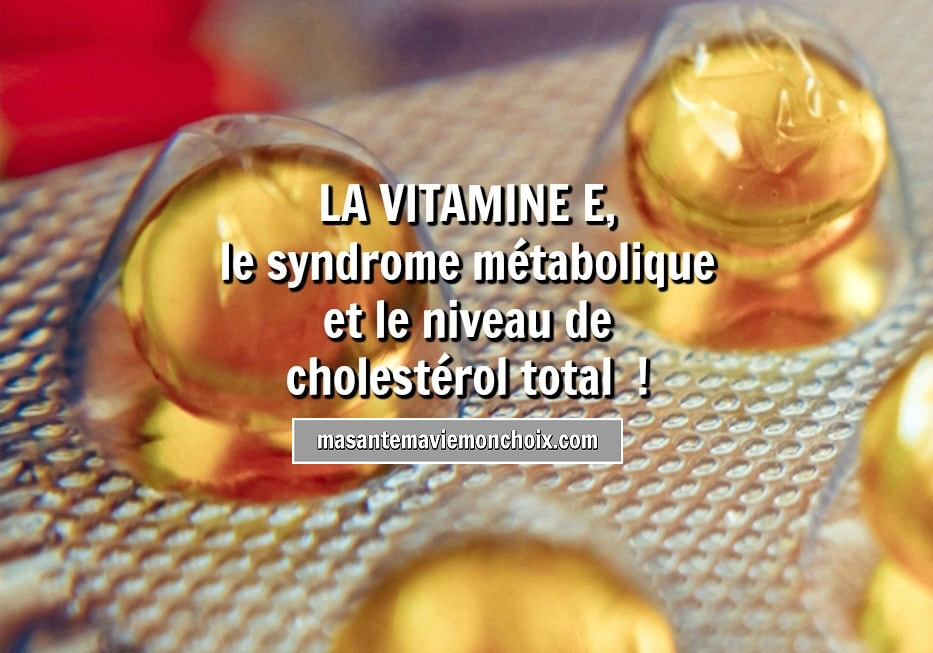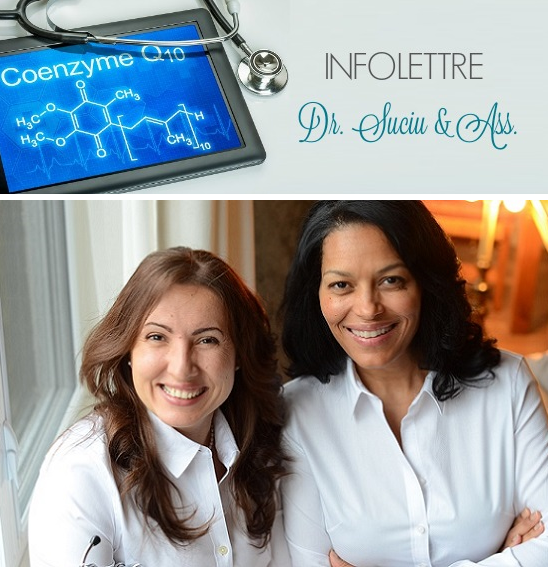|
Les personnes hypercholestérolémiées ont besoin d'une plus grande quantité d'antioxydants pour réduire le niveau d'oxydation. Aujourd'hui, plus de 40 substances orthomoléculaires ont été testées et ont prouvé aider les personnes souffrant d'hypercholestérolémie. Des preuves cliniques existent également sur l'efficacité de l'utilisation de suppléments dans les troubles lipidiques. Aujourd'hui, on parle de la vitamine E et le niveau de cholestérol total! Les effets de trois doses différentes de suppléments de tocophérol (100 UI / jour, 200 UI / jour, 300 UI / jour) pendant 4 mois chez les femmes chinoises atteintes de syndrome métabolique:
RÉFÉRENCE:
Veuillez lire l'article complet (en anglais seulement) : Int J Vitam Nutr Res. 2010 Jun;80(3):178-87. doi: 10.1024/0300-9831/a000015. Effects of vitamin E on plasma lipid status and oxidative stress in Chinese women with metabolic syndrome. Wang Q1, Sun Y, Ma A, Li Y, Han X, Liang H. Abstract Following the change of dietary structure and living style, metabolic syndrome (MetS) has become increasingly common in China, especially in women, who have abnormal plasma lipid profiles with increased levels of oxidative stress. Vitamin E (VitE) is a powerful chain-breaking antioxidant, which may be a protective factor against oxidative stress-related diseases. This study investigated the effects of three different dosages of tocopherol supplementation (100 IU /day, 200 IU /day, 300 IU /day) for 4 months in Chinese women with MetS. The plasma VitE concentrations increased significantly after the 4 months of supplementation (p < 0.01). The protective decreases in plasma total cholesterol were significant in 200 IU/day and 300 IU/day VitE groups (p < 0.05), but decreases in high-density lipoprotein cholesterol were also significant in all the supplementation groups (p < 0.05). Plasma triglycerides were unaltered (p > 0.05). The indicators of oxidative stress decreased substantially in all of the VitE supplementation groups: malondialdehyde (MDA) was reduced by nearly 50 percent (all groups, p < 0.001), erythrocyte hemolysis was decreased by nearly 40 percent (all groups, p < 0.05); among which the 300IU/day VitE group showed the most significant effect. However, the activity of superoxide dismutase (SOD) decreased after the trial (p < 0.001). VitE provided marked benefits in reducing oxidative stress levels and improving lipid status in women with MetS. Although no dose-effect relationship was observed, 300 IU VitE per day showed the optimal effect. Research is needed to identify potential protective mechanisms or utilization of vitamin E during MetS. Les commentaires sont fermés.
|
AVIS IMPORTANT:
Veuillez prendre connaissance de cet avertissement et rappelez-vous que le site www.drsuciu.com ne saurait remplacer une consultation avec vos professionnels de la santé. L'information fournie sur le site web www.drsuciu.com est d'ordre général. Avant de prendre toute décision de nature médicale ou si vous avez des questions concernant votre état de santé personnel, adressez-vous à un professionnel de la santé qualifiée. D'aucune manière ces points de vue, commentaires et renseignements ne constituent une recommandation de traitement (préventif ou curatif), une ordonnance ou un diagnostic, ni ne doivent être considérés comme tels. Archives
Août 2017
|



 Flux RSS
Flux RSS